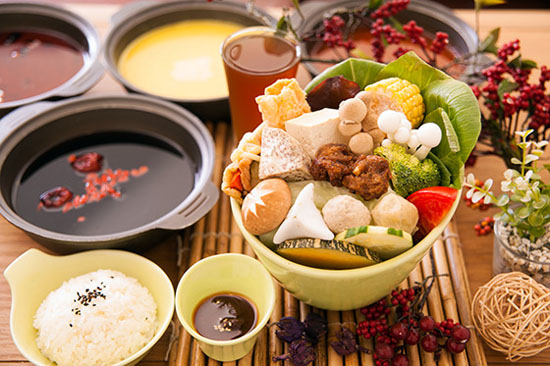A Chinese medicinal diet is not a simple combination of food and herbs, but a specially prepared dish made from Chinese herbs, food and condiments according to the theoretical guidelines of diet preparation. Such a diet is in response to the different symptoms of a disease and its diagnosis according to TCM, and used to prevent and treat diseases, improve fitness, and/or slow down the aging process.
One of the unique concepts of TCM is that food and medicine come from the same source, they are based on the same theories, and have the same uses. TCM further states that good, free-flowing qi (vital energy) needs to flow within our body and if that qi is corrupted, we become ill. The flow of qi needs to be vigorous to maintain good health; and it can be improved and maintained by changing what we eat.
Although Chinese doctors study for years before prescribing herbal remedies, anyone can take the basic premises of Chinese medicine and apply it to daily life. In fact, there is a long tradition of using herbs at home which are added to salads. More often, these are cooked as fresh soups which are rich in vitamins and minerals.
The characteristics of using Chinese functional foods for health and healing are:

1. Synergy of food and medicine
Medicine and food function as supplements and complement each other. Functional food is rendered with medicinal properties, and the effects of medicine become stronger with the combination of food.
2. Applied by differentiation of symptoms and signs
TCM diagnosis and therapy are based on differentiating symptoms and signs, and this is incorporated into the selection of functional foods. Specific groups of signs and symptoms indicate specific treatment protocols. For example in spleen deficiency which is diagnosed by low spirits, weakness of limb, loss of appetite and abdominal distension - functional foods like Chinese date, ginger, Chinese yam and ginseng are added in order to invigorate functioning of the spleen.
3. Unique cooking techniques and procedures
In order to ensure the desired result of a medicinal diet, herbs and foods should be specially processed such as cutting it into pieces, parching or grinding. Besides, cooking techniques are considered for retaining the effective constituents of food and bringing to bear its full effects on treatment and health care. Proper techniques also help to preserve the original juice and flavor of the ingredients so that it results in attractive colours, aroma, flavor and texture, thus arousing the appetite. Usual cooking methods are steaming, stewing, boiling or making soup while those of deep-fry or roasting are rarely used.
4. For enhancement and treatment
Chinese functional foods are a milder course of treatment and can be used either to treat disease, or to help healthy people build stamina and prevent disease. This is one of the characteristics in which medicinal diet is different from drugs.

![Diseases, Symptoms, tcm, [tcmwindow.com]](/uploadFile/adImg/2015/11/11/f5cbfcc0-4df5-4646-9b9a-f316651a0199.jpg)





